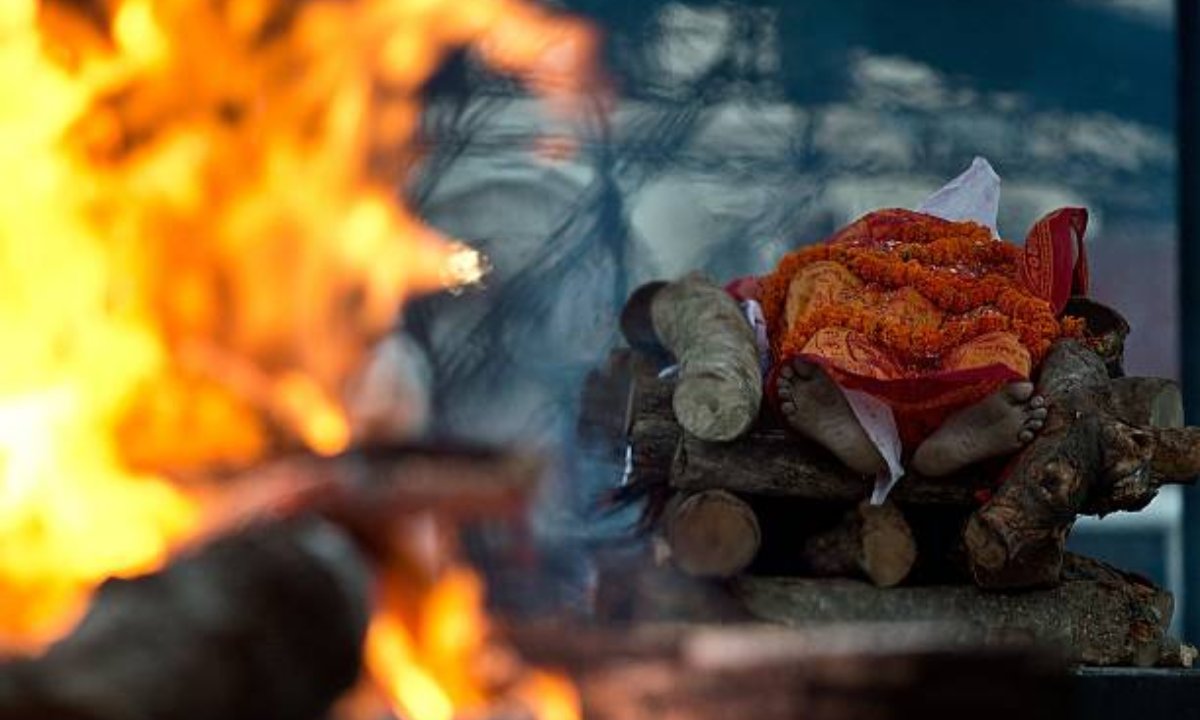Hinduism is a prominent religion, being the third most practised in the world, and has its roots in the Indian subcontinent. The term “Hinduism” refers to a vast body of literature and rituals, some of which date back to the second millennium BCE or probably earlier. The holy religion comprises a range of philosophical ideologies, religious beliefs, and ritualistic practices.
Great regard and respect is placed upon the customs, traditions and rituals the natives follow. This is evidently seen in the way they commemorate the Hindu funeral rites. And in this blog post, we will explore the varied dynamics, beauty and essence of these rituals to have an inside look at how Hindu funeral services are practised.
Hindu Beliefs And Traditions Surrounding Death
Hindus believe in the concept of after-life and reincarnation also known as “Punarjanma” which literally translates to “re-birth”. Thus, when an individual dies, they are believed to be reborn in a new lifeform that need not necessarily be a human form. It is said that the body is temporary and would perish after one’s death but the soul continues to exist and takes a new life form.
This cycle is said to be on a loop until a person attains “Moksha” which means “Eternal peace”. According to this, if a person receives eternal peace, they are free from the constant cycle of life and rebirth.
What Are Hindu Funeral Rites
Hindu funeral service traditionally consists of chants or mantras that are presided over by a traditional Hindu priest or the deceased’s eldest son. The family, relatives and loved ones gather to pay respect to the dead and pray for the smooth journey of their soul. The Hindu funeral services comprise many rituals and vary due to the diversity present in the religion. But here are some practices which are followed by almost all cultures practising Hindu funeral rites;
- Cleansing and washing the body (Few cultures use yoghurt, honey and milk in the process)
- Dressing the deceased in new clothing mostly any traditional clothing that they regularly wore or in some cultures extravagant dressing is practised.
- Tying the big toes together and wrapping the body in white clothing.
- Garlands of flowers are placed on them. The loved ones or relatives who come to pay respects also bring flowers to show their love and regard to the departed.
- Everybody gathered in the Hindu funeral rite, is expected to sprinkle water on the deceased’s body, typically using a sacred leaf, like tulsi and bow in respect.
- Usually, the eldest son has to stay by the body throughout the procedure.
What Is The Duration Between Death And Hindu Funeral Service
According to Hindu traditions, the body has to be kept in the home until taken to the cremation site, which often takes place within 24 hours of the death unless there is an extreme need to keep it on hold in cases like, an important, close family member is away and can reach only after a day or so.
Hindu cremations only last a few hours, therefore embalming is not thought essential. But if dead body transportation services are required, then embalming is necessary to preserve the body.
What Can We Expect to See During a Hindu Funeral Rite
- While mourners offer prayers, the casket is taken feet first into the Crematory.
- The loved ones can observe the deceased’s body in an open casket. This must be done with respect and without touching the deceased.
- The cremation ritual, or “mukhagni,” is conducted by a Hindu priest and senior family members.
- Modern Hindu funeral services, however, permit women to participate even though traditionally, only men were allowed to attend the mukhagni.
- Hindu funerals end with the “Antim Sanskar”, which is the scattering of the deceased’s ashes or remains over a holy body of water or another significant location the next day.
All these elaborate funeral services can be challenging to arrange during the period of bereavement and grief. It is totally understandable that losing a loved one can bring distress and planning for a Hindu funeral rite can potentially add more to it.
This is why, it is recommended to take assistance from a reputed funeral service provider like beleiv so you can rest assured that the funeral services are taking place with utmost dignity and expertise while you can stay at solace and mourn peacefully.
How Should I dress For a Hindu Funeral?
Contrary to other faiths, black is not considered appropriate at Hindu funeral rites. Instead, mourners are expected to wear white according to funeral customs. Some cultures may not specifically wear white but still, wearing simple non-extravagant and modest clothes is practised.
What Can One Bring To a Hindu Funeral Rite Ceremony?
It is not customary to send flowers or presents to a funeral; instead, such offerings should be delivered to the family in advance of the funeral service.
What Occurs following a Hindu funeral?
Hindus often observe a period of mourning for 10 to 30 days. Families may place a photograph of their deceased loved one adorned with a floral garland anywhere in their home at this period. Additionally, at this time, guests join the household and support one another while also cherishing beautiful memories with the deceased.
The bereaved family frequently holds a ceremony called “preta-karma” on the thirteenth day of mourning during which they carry out rituals to aid in the soul’s release for reincarnation. In addition, the family holds a memorial celebration to remember the life of their loved one on every anniversary of the passing.
Conclusion
The rich essence of Hindu Funeral Rituals is deep-rooted in the culture of the natives and practised with the intention of preserving the varied heritage while providing a sense of relief and space for the mourners with the right support.
However, during this challenging and devastating period, funeral service organisations like Beleiv is always there to assist you with their end-to-end funeral services and compassionate support. Feel free to reach out to Beleiv, where you can, mourn in peace and be ensured that your deceased loved one will have the most respectable and dignified funeral services.





